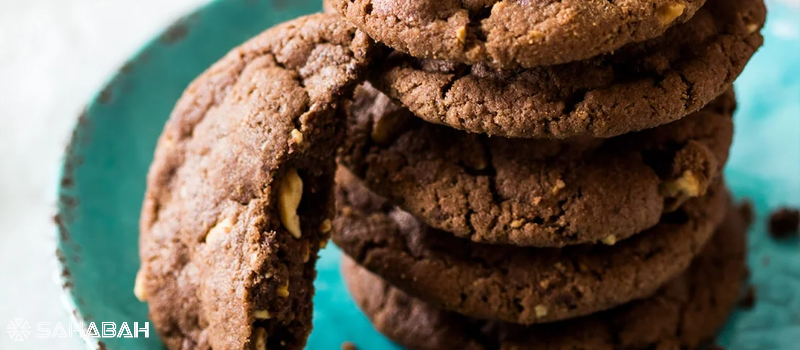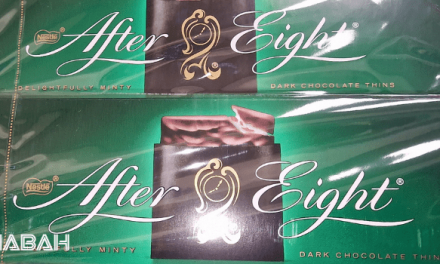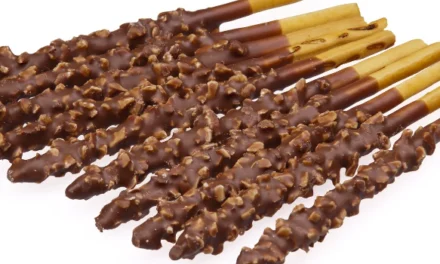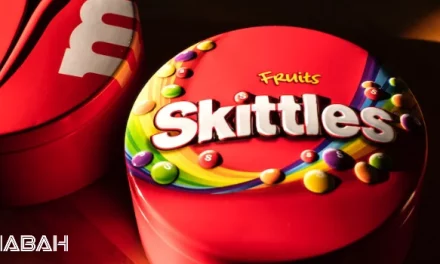Chips Ahoy cookies are an iconic American brand known and loved across the globe for their signature chewy chocolate chip goodness. But can Muslims safely enjoy these popular snack cookies? Are Chips Ahoy halal?
For consumers who follow a halal diet in accordance with Islamic law, the halal status of favorite foods like Chips Ahoy is an important question. In this comprehensive article, we’ll explore whether original Chips Ahoy chocolate chip cookies meet halal standards for ingredients, manufacturing processes, and certification.
What Makes Food Halal or Haram?
To understand if Chips Ahoy qualifies as halal, we first need to cover the basics on what makes food permissible or prohibited under Islamic dietary guidelines.
The Arabic word “halal” means permissible or lawful. For a food to be halal, it must comply with the dietary standards set forth in the Qur’an and Hadiths. Here are the key requirements:
- Cannot contain any haram ingredients – All ingredients must be free from anything considered prohibited. This includes pork, blood, carnivorous animals, alcohol, and derivatives.
- No contamination with haram substances – Halal foods cannot come into contact with anything haram during preparation, processing, packaging, or storage. This includes shared equipment, utensils, surfaces, etc.
- Humane slaughter – Any meat or poultry must come from animals slaughtered according to Islamic procedure. This includes reciting tasmiya and severing the windpipe.
- Hygienic conditions – All foods must be prepared, processed, and stored in sanitary conditions.
If any of the above criteria are not met, the food would be considered “haram” meaning unlawful or prohibited under Islamic law.
When determining a food’s halal compliance, both the ingredients as well as manufacturing processes require examination. Certification also provides verification.
Overview of Halal Certification Process
To help Muslim consumers identify halal products, many companies obtain independent certification from accredited halal organizations.
During the halal certification process, all aspects from ingredients sourcing to cleaning procedures are audited for compliance with Islamic standards. If they meet criteria, the organization will certify the product/facility as halal and allow their trademark symbol to be displayed.
This official logo helps customers easily recognize products aligned with their dietary guidelines. It also signifies the item has successfully passed a full supply chain audit.
Some of the major halal certification organizations around the world include:
- USA: Islamic Food and Nutrition Council of America (IFANCA); Islamic Services of America (ISA)
- Canada: Islamic Society of North America (ISNA)
- UK/Europe: Halal Food Authority (HFA); Halal Monitoring Committee (HMC)
- Malaysia: Department of Islamic Development Malaysia (JAKIM)
- Singapore: Majlis Ugama Islam Singapura (MUIS)
Top accreditation bodies that set standards for halal certification include the Standards and Metrology Institute for Islamic Countries (SMIIC) along with the World Halal Council (WHC).
So now that we understand the basics of what makes something halal along with legitimate certification, let’s analyze the Chips Ahoy ingredients and manufacturing processes.
Examining Chips Ahoy Ingredient List
When assessing any product’s halal status, the first place to check is the ingredient list printed on packaging.
Chips Ahoy list out these key ingredients for their original chocolate chip cookies:
- Enriched flour (wheat flour, niacin, reduced iron, vitamin B1/thiamin mononitrate, vitamin B2/riboflavin, folic acid)
- Sugar
- Palm oil and soybean oil (vegetable oils)
- Chocolate chips (sugar, chocolate liquor processed with alkali, cocoa butter, milkfat, soy lecithin as emulsifier, vanillin)
- High fructose corn syrup
- Baking soda and salt (leavening agents)
- Natural & artificial flavors
Do any of these components raise red flags for halal compliance? Let’s break it down further.
Main Ingredients Analysis
The main ingredients like enriched wheat flour, sugar, vegetable oils, chocolate liquor, cocoa butter, baking soda, and salt appear permissible based on Islamic dietary laws.
- The enriched flour comes from wheat, which is halal. Enriching agents like iron also seem compliant.
- Regular cane sugar is considered halal, though some strict Muslims avoid refined sugar.
- Palm oil and soybean oil derived from plants are typically halal. Note palm oil does raise environmental sustainability concerns.
- Cocoa products like chocolate liquor generally come from plant-based sources, making them permitted ingredients.
So upon initial glance, the main components of Chips Ahoy cookies seem halal-friendly.
Milkfat & Soy Lecithin
However, the chocolate chips contain milkfat and soy lecithin. How do these dairy-based and soy ingredients impact halal status?
-
Milkfat: The addition of milkfat makes the chocolate chips unsuitable for vegan diets. It also means Chips Ahoy cannot be considered dairy-free. While regular milk is halal, strict Muslims may want to avoid milkfat and other dairy since trace contamination can occur during large-scale production.
-
Soy lecithin: Soybeans and soy-derived ingredients like lecithin are typically regarded as halal by most Muslims. However some avoid GMO soy or overly processed forms. As an emulsifier, there are purification requirements, but soy lecithin seems compliant.
So while the dairy and soy ingredients raise questions for some Muslim consumers, they do not definitively indicate haram status according to most schools of thought.
Controversial Ingredients
What should give stricter halal followers more pause are two vague ingredients:
- Natural & artificial flavors
- Colors added (turmeric, annatto)
Flavorings
The unspecified “natural & artificial flavors” encompass any flavor additives used, whether plant/animal-derived, synthetic, or alcohol-based. Lacking detail, it is unclear if they are halal-compliant or risk cross-contamination.
Food Colorings
Similarly, though turmeric and annatto seem halal, loose food colorings can be derived from insect shells or glossy secretions, both prohibited. Without explicit detail, uncertainty remains.
Overall Ingredient Verdict
Analyzing the ingredients highlights some questionable components that do not definitively satisfy strict Islamic dietary standards. While no conclusively prohibited substances are listed, the risk of cross-contamination combined with unspecified ingredients makes determining halal suitability difficult based on the ingredient label alone. Additional verification through certification or contacting Nabisco is required for certainty.
How Are Chips Ahoy Cookies Manufactured?
Beyond ingredients sourcing, examining production processes provides further insight into potential areas of non-halal contamination.
We know Chips Ahoy cookies are made in Nabisco bakeries across America. The plants operate high-volume production lines, frequently processing different varieties of cookies including Oreos.
Common steps in industrial cookie manufacturing include:
- Blending dry ingredients like flour, sugar, salt and leaveners
- Adding binders like eggs or oil along with flavorings
- Forming dough balls
- Flattening dough with rollers
- Cutting cookie shapes
- Baking
- Depositing chocolate chunks
- Cooling then packaging
Along the way there are many opportunities for cross-contamination with non-halal ingredients through shared equipment and surfaces:
- Ingredient bins may contain traces from dairy, egg or shellfish cookies
- Rollers, cutters, and baking pans transport across varieties
- Chocolate tanks likely have contact with varieties containing gelatin or alcohol
- Packaging equipment also processes non-halal items
Without careful protocols and verification, contamination seems inevitable. But does Nabisco operate halal compliant plants separately?
Does Chips Ahoy Have Halal Certification?
The final step in determining any product’s halal status is checking official certification
The Verdict: Are Chips Ahoy Cookies Halal?
Given the in-depth analysis of ingredients, manufacturing processes, and certification, what’s the final ruling on the halal compliance of those classic Chips Ahoy chocolate chip cookies?
Unfortunately, the verdict is:
Original Chips Ahoy cookies are NOT halal certified and do NOT satisfy strict Islamic dietary laws.
Although the main ingredients appear vegetarian-friendly, uncertainties around:
- Vague “natural flavors” possibly containing alcohol
- Shared manufacturing equipment risks contaminating contact surfaces
- No verification through halal audit
Together make their halal status for observant Muslims questionable at best, if not conclusively haram.
Less strict followers may deem Chips Ahoy permissible, especially those who permit dairy or don’t require certified foods. But for Muslims wanting guaranteed halal, Chips Ahoy don’t make the cut.
Halal-Certified Cookie Alternatives
While classic Chips Ahoy vary by region, currently none are certified halal for the North American or UK markets. Thankfully several delicious halal-compliant cookies are available, including:
- Mittie’s Skinny Chocolate Chip Cookies
- Saffron Road Chocolate Chip Cookies
- Ivy’s Bake Shop Premium Cookies
- Mondelēz Oreo Cookies (select halal certified varieties)
Always check packaging for credible halal symbols from certification bodies to verify compliance with dietary laws. Contact manufacturers directly if unsure.
Following a halal diet need not mean sacrificing sweet treats. With more awareness and options emerging, keeping halal can still be full of flavor.
This concludes our comprehensive analysis on the halal status of Chips Ahoy cookies – an iconic brand cherished by generations of consumers across cultures. While mainstream varieties currently fall short of meeting strict Islamic guidelines, hopefully growing demand will encourage more accessible halal-friendly options in coming years.
Let us know in comments your fave cookies suitable for a halal lifestyle!
Frequently Asked Questions: Is Chips Ahoy Halal?
Chips Ahoy is not certified as halal. It’s important to note that whether Chips Ahoy adheres to a halal diet, you should check the ingredients and the label to guarantee the suitability.
Are there any haram ingredients in Chips Ahoy?
It’s always best to look at the ingredients and find out whether Chips Ahoy contain haram ingredients such as lard or other non-halal animal ingredients.
Are Chips Ahoy products vegetarian?
The world of Chips Ahoy ingredients should be checked to confirm whether they adhere to vegetarian dietary guidelines.
Is Chips Ahoy certified as halal in Malaysia?
Chips Ahoy is not certified as halal in Malaysia. It’s always important to verify whether it meets halal dietary guidelines.
Where can I find information about the ingredients of Chips Ahoy?
You can check the packaging or the official website to find details about the ingredients used in Chips Ahoy products.
Is Chips Ahoy certified halal in the US?
Chips Ahoy is not certified as halal in the US. Always check the label to ensure it meets your dietary requirements.
Why is it important to check the ingredients of Chips Ahoy?
It’s always best to check the ingredients and the label to guarantee the suitability of Chips Ahoy products according to your dietary restrictions, such as a halal diet.
Are there any vegetarian options within the Chips Ahoy range?
It’s important to note whether there are specific products within the Chips Ahoy range that adhere to a vegetarian diet, and to check the packaging or official information for clarity.
Does Chips Ahoy contain halal animal ingredients?
It’s always important to verify whether Chips Ahoy contain halal animal ingredients by checking the product’s ingredients and certification, if available.
Is Chips Ahoy halal in the UK?
Chips Ahoy isn’t certified as halal in the UK, so it’s important to check the label and ingredients to ensure it aligns with your dietary requirements.





